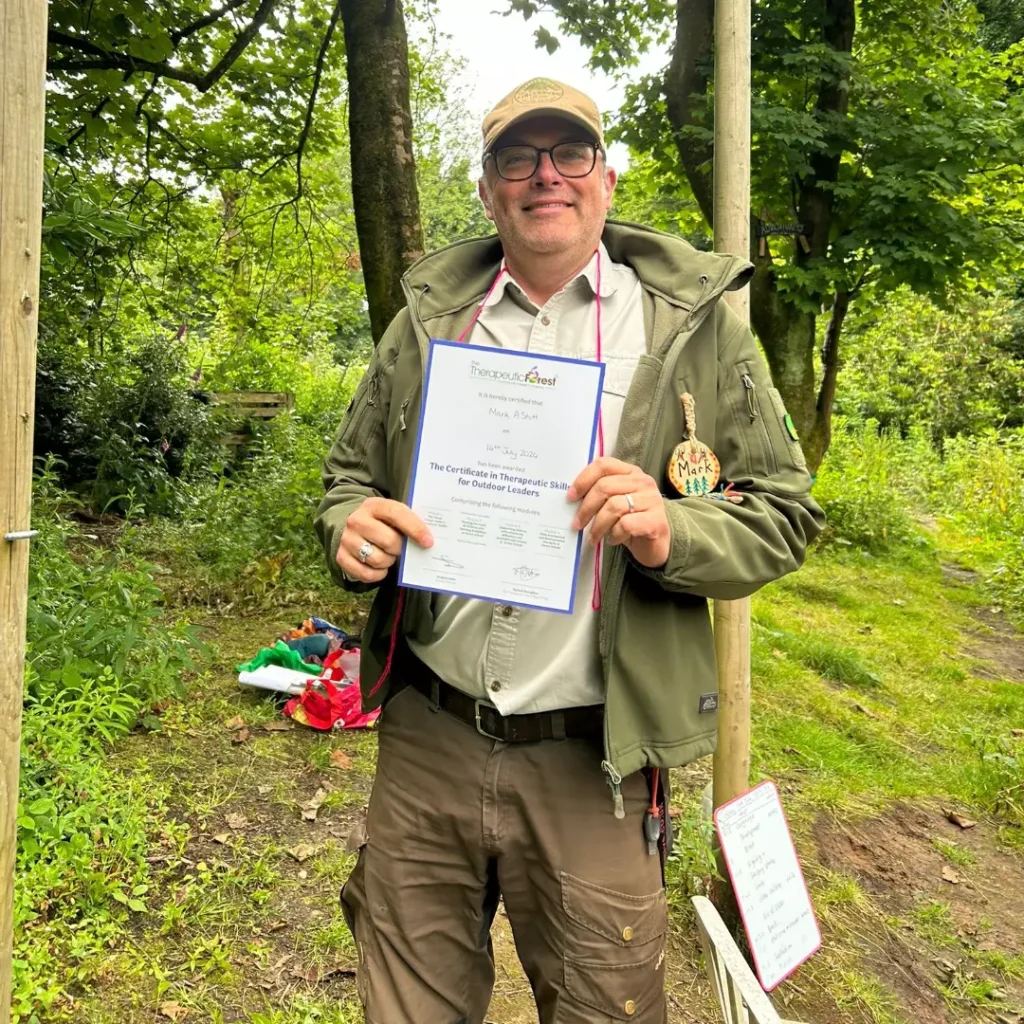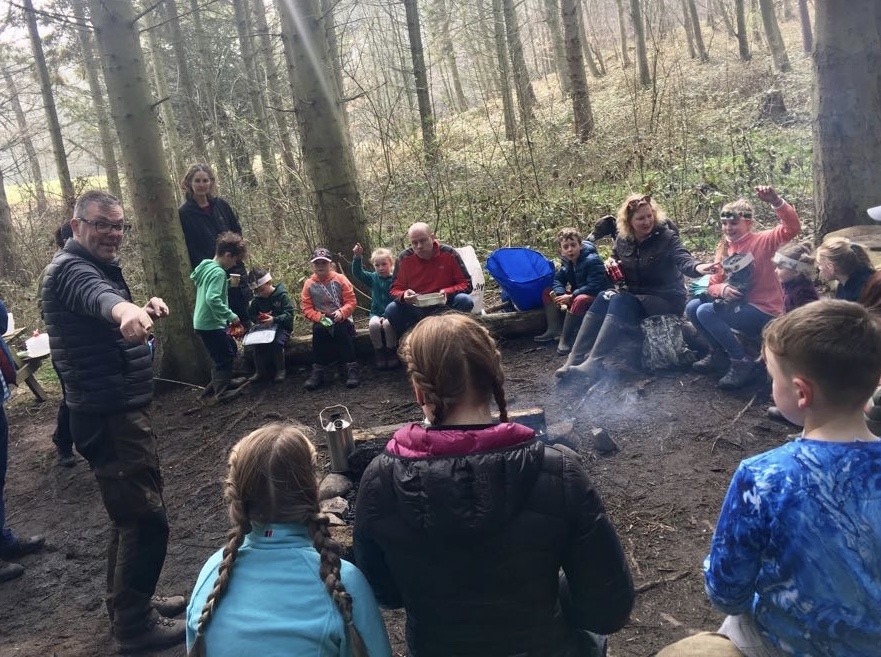 Working on your school grounds or a site of your choice, our Forest School approach can be customised to different age groups. This gives pupils the opportunity to learn key skills and concepts in a hands-on and memorable way outside of the usual classroom environment.
Working on your school grounds or a site of your choice, our Forest School approach can be customised to different age groups. This gives pupils the opportunity to learn key skills and concepts in a hands-on and memorable way outside of the usual classroom environment.
Forest School activities can include:
- Bushcraft style survival skills –shelter building, navigation and creating fire by friction
- Transient environmental art
- Curriculum specific topics – e.g. maps & grid references, carbon cycle
- Using our senses to explore the environment
- Seasonal change
Mark is verified by the Forest School Association as a Level 3 Forest School Leader. He also recently completed the Therapeutic Skills for Outdoor Leaders course offered by @TherapyForest.
The Forest School approach to learning outdoors can give valuable life long memories and valuable practical experiences that can be developed on back in the classroom.
Risk taking is part of life and our Forest School programmes are risk/benefit assessed. We aim to respond to these needs by offering children exciting and challenging activities. To enable them to explore and develop their abilities, encourage persistence and resilience and also a sense of achievement. Forest School promotes interactive hands-on, real-life learning where children learn through problem solving and experimentation.
As an inspirational process, Forest School offers all learners regular opportunities to achieve and develop confidence and self-esteem, through hands-on learning experiences outside the usual classroom environment.
Forest School is a specialised learning approach that sits within and especially compliments the wider context of outdoor education.
At Forest School all participants are viewed as:
- equal, unique and valuable
- competent to explore & discover
- entitled to experience appropriate risk and challenge
- entitled to choose, and to initiate and drive their own learning and development
- entitled to experience regular success
- entitled to develop positive relationships with themselves and other people
- entitled to develop a strong, positive relationship with their natural world
This learner-centred approach interacts with the ever changing challenges of the natural world through the seasons to fill sessions with discovery and difference. Yet each programme does also share a common set of principles, aimed at ensuring that all learners experience the cumulative and lasting benefits that quality Forest School offers.
The link below will take you to the Forest School Association’s website.


